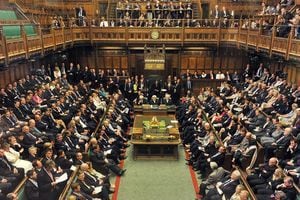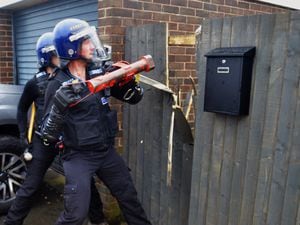STAR COMMENT: Boundary changes a way off yet
We broadly welcome plans to redraw parliamentary constituency boundaries.

The current system, while appearing to have some logic, is fundamentally flawed and based on outdated figures.
The number of voters per constituency differs massively depending on where you live. Typically Conservative-held rural constituencies often have several thousand more voters than the smaller inner-city seats that tend to vote Labour.
This creates an obvious imbalance and bias in the system. Similarly, English constituencies on average have more than 70,000 voters, compared to around 55,000 in Wales.
It will be no surprise that voters in Scotland, Wales and Northern Ireland are better represented than England – despite those parts of the UK having devolved government.
By having constituencies that are consistently the same size – about 77,000 people – it means we will have a fairer system that will give a truer and more proportionate reflection of national opinion.
It is also to be welcomed that the number of MPs will fall from 650 to 600. This will save the taxpayer money in salaries and administrative costs.
Though these changes will not be without controversy. The logic in the current system is that boundaries have been drawn so they respect historic and local authority connections.
One of the complications with the new proposals is that a seat such as Walsall North – which covers Bloxwich and Willenhall in the borough of Walsall – will be split. It means more MPs will have to deal withmake representations to more than one major local authority.
Many constituents will no longer be represented by MPs they have backed for many years, and it means that communities that don’t necessarily have any major links are lumped together.
Also it creates greater difficulties in running elections across council borders, and generally will be more convoluted, confusing, and difficult to explain.
And many will be suspicious that the real motive is to engineer a model which is preferable to the governing party. No system is perfect, but that is not an excuse for doing nothing.
Some will argue that having a form of proportional representation will solve this problem, but equally there are many compelling arguments for maintaining the status quo.
The third and final consultation has now launched but it is difficult to see how any changes can be madewill get off the ground with parliament so precariously placed.





